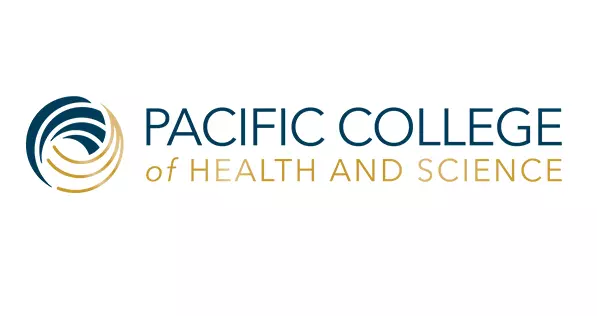By Caroline Radice, DACM, LAc
As the number of committed practitioners of East Asian herbal medicine has grown, it has become increasingly clear that we, as practitioners, should no longer have our interests and needs subsumed under the larger umbrella of a professional acupuncture association. The time has come for an East Asian herbal medicine-specific professional body. Inspired to establish an organization for practitioners to better communicate with not just each other but also growers, educators, distributers and consumers of East Asian herbal medicine, Sally Rappeport, MS, LAc, a Brooklyn-based practitioner and board member of the High Falls Foundation, requested my assistance founding such an organization in 2016. As a practitioner and instructor of herbal medicine for more than 20 years, I shared her desire to organize a platform to speak with a unified voice for all who have an interest in a well-trained, ethical community of professionals who furnish excellent care using high quality products. With an eye to history and to the future, we called ourselves the Shen Nong Society (SNS).
Collaborative Efforts and Objectives of the Shen Nong Society
The Shen Nong Society exists as a non-profit organization under the auspices of the High Falls Foundation. High Falls Gardens started as a “small farm with a big idea” based in Philmont, NY. As longtime growers of medicinal herbs, High Falls Foundation shares the goal of the SNS: to increase communication among the various interests that use herbal products in cooperation with the Appalachian Herb Grower’s Consortium, based in western Virginia. Their mission is to further education, research, and conservation of medicinal plants.
We hope that the Shen Nong Society will become an organization that upholds the values and integrity of East Asian herbal practitioners and that respects, acknowledges, and supports the various interests that grow, use, sell, and legislate herbal medicine. As an organization, we intend become a resource for posting case studies, blog features, and events of interest. Additionally, we will publish monthly articles on various topics that will be on the website and sent to the inbox of all Affiliates. For the first year, Sally and I made up the Board of Directors as President and Vice President. In April 2017, we were joined by Marnae C. Ergil, DACM, LAc, who currently serves as Secretary and Treasurer.
Are you interested in becoming a certified acupuncture professional?
Visit the links below to explore our specialized acupuncture programs at a campus near you:
Inaugural Conference and Pioneering Discussions in Herbal Medicine
After months of organization and planning, The Shen Nong Society held its first annual conference in March 2017, at the Tri-State College of Acupuncture in New York City. We were delighted with the outpouring of support for our inaugural conference and we sold out all available seats two months in advance. Among the presenters we were privileged to feature was our keynote speaker Sharon Weizenbaum, of White Pine Healing Arts in Amherst, MA, who is an internationally regarded teacher of classical herbal medicine. Her presentation, entitled “From What Foundation Do We Grow: Toward the Future of Chinese Herbal Medicine” discussed the roots of our medicine in her uniquely accessible manner. We were also honored to have Z’ev Rosenberg, long time educator and scholar of Chinese herbal medicine and former chair of the Pacific College of Oriental Medicine San Diego’s Department of Herbal Medicine, speaking on “Seasonal Qi, Epidemics, and Chinese Herbal Medicine”. Jean Giblette, of the High Falls Foundation, representing growers, discussed “Quality in Herb Production: The Dirt on Dirt”, and Dr. Eric Brand, with unique training in herbal pharmacy and ethnopharmacology, was enthusiastically received for his talk on “Changes in Herbal Medicine from Ancient Times to the Present”. Representing the Kampo traditional medicine of Japan, Nigel Dawes spoke on “How to Study Herbal Medicine in the 21st Century”, and Dr. Frank Butler rounded out our presenters in a Q&A on “Training through Apprenticeship in Chinese Medicine”. As you can imagine, with such remarkable presenters, the conference was a huge success!
In Sally’s opening remarks at the conference, she noted that there was no professional organization that existed as an umbrella for practitioners of East Asian herbal medicine to communicate with each other and to discuss the many important issues specific to our practice, such as herb acquisition, herbal substitutions, FDA and legislative issues, pharmacy programs, and continuing education. As committed practitioners who have an interest in designing formulas for our patients, we must be the ones to support this ancient practice into the 21st century and we must be organized to address important topics as they arise. The Shen Nong Society intends to fill that void and represent East Asian herbal medicine practitioners and growers on the national and international level.
Future Directions and Expanding Influence of the Shen Nong Society
We are excited to announce that the date for our second annual conference is set for March 24, 2018. After selling out last year, this year we will have a larger venue at the SUNY Global Center in New York City, which will allow us to seat over 100 participants. Featured speakers include Sabine Wilms, translator of the Shen Nong Ben Cao Jing, the Jin Gui Yao Lue and many other texts will speak on “The Divine Farmers Message to Modern Practitioners of Chinese Medicine”. Craig Mitchell, translator of the Shang Han Lun and President of the Seattle Institute of East Asian Medicine will present “A Frog at the Bottom of the Well: Why Siloing and Polarization in East Asian Medicine Leads to Poor Patient Outcomes”. Other speakers will include Cara Frank of Six Fishes Healing Arts in Philadelphia, Jean Giblette of High Falls Garden, and Maryanne Travaglione. Please visit http://www.shennongsociety.org/ for more information.
Featured Posts:
- Black Tea Aids Oral Health
- Deep Dive into Extract Powders & Granules
- Postpartum Care: The Bridge that Sustains and Supports Us as Our Families Grow
- Pacific College Book Club: Some of Our Community Members’ Books
- “Shenocide”: Three Protocols for the Treatment of Psychospiritual Aspects of Opioid Addiction

